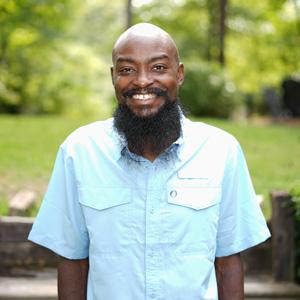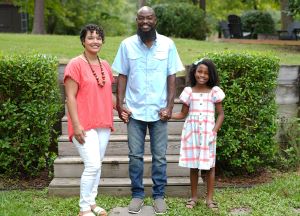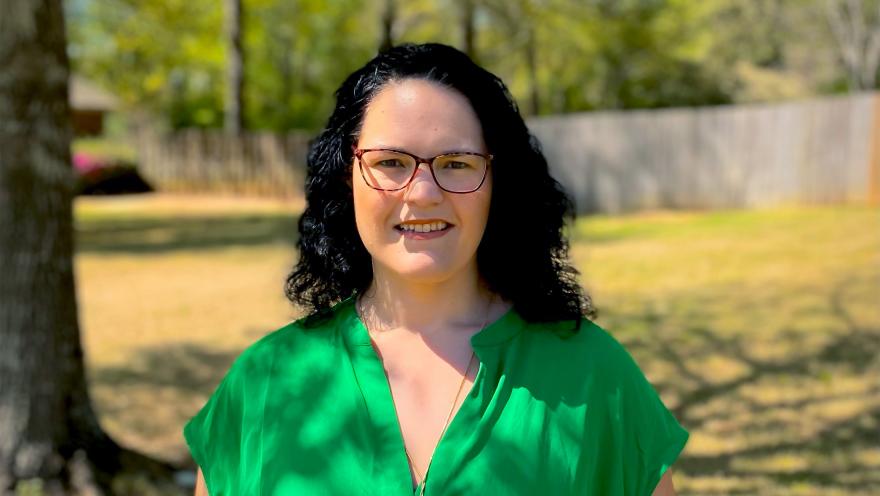Many families impacted by ALS will tell you that living with the disease can feel very isolating and that just getting through everyday life can at times be very challenging. The ALS Association’s nationwide network of local care teams work tirelessly with families to provide education, support and resources to help.

One of those care team members is Melissa Enfinger, director of care services in Alabama, who works very closely with the Woody family in Auburn. “I first met Lamar in our ‘Living with ALS Support and Connection Group,’” she recalls. “This was during the time we had moved to a virtual only statewide format, so I had not met him in person. Even in a group online format though, Lamar's warmness, personality, and passion came through so strong. I could see he has so much compassion and a fire to help other people and families living with this disease.”
Several months later, Melissa and her team were preparing for the Association’s virtual National Advocacy Conference, and recognizing his tenacity and passion, she asked Lamar if he would be willing to participate and share his story. “I knew he was busy with classes he was taking and his family - but I also thought he would be such a powerful voice and advocate.” Lamar happily accepted Melissa's invitation and met with congressional leaders to fight for change for people with ALS.
“The ALS journey is so individualized,” says Melissa. “Each person has unique challenges, progression, resources and circumstances. The best thing we can do as ALS Association care services team members is to be there and talk through with that individual, and with those family members, what is going on, what are the current concerns, what may be coming and work with them to access the information, resources, and support they need.”
Melissa stresses that having ALS can put people in a lonely place if they don’t have someone to turn to. “ALS is so difficult. We are that local, on the ground presence. Our staff is here to sit with that person or that family and even though we can't yet stop the disease, we can help them figure out how they can live with it in the way that they get the most care, quality, and satisfaction.”

Melissa went on to say, “in Lamar's case, he is a musician, and he is an artist, and he is a student, and he is a great many things that he is still able to do, just in different ways than maybe when he did not have ALS. And as ALS progresses, we are going to be there to help him and help his wife Kristina and help his daughter Natalie figure out how does all of that fit in? And he still gets to maintain his identity, who he is at his core and who they are at their core and who their family is at their core.”
In most cases, as ALS progresses, a family’s needs, and the amount of support in terms of daily routine begin to look different over time. “We know that there's going to be a lot of loss,” she says. “What we don't know is the when and how and all of that, but we know it's coming. So having that relationship and being able to ask people and to learn from people what is most important to them allows us to be able to focus on and deliver what they truly want and need.”
For more information or to learn more about our local care services teams across the country, visit our website HERE.
Special thanks to Melissa Enfinger and the team in Alabama for allowing us to share their thoughts and experiences with ALS the community. We are continuing to share more each week about the Woody family and their everyday life living with this disease, and we hope you will follow along and share with your family and friends.
To continue to follow stories about people living with ALS in the community and learn more about the disease, subscribe to receive our weekly blogs in your inbox HERE or follow us at als.org/blog.


Join the conversation. Please comment below.